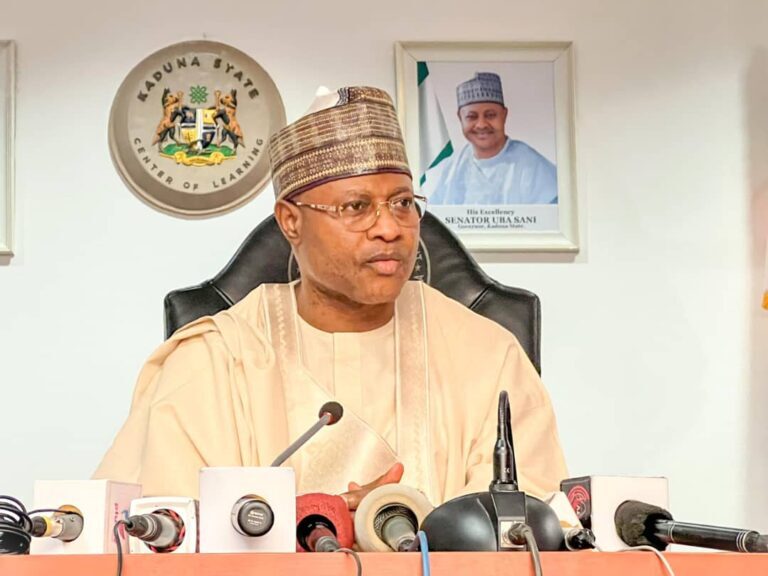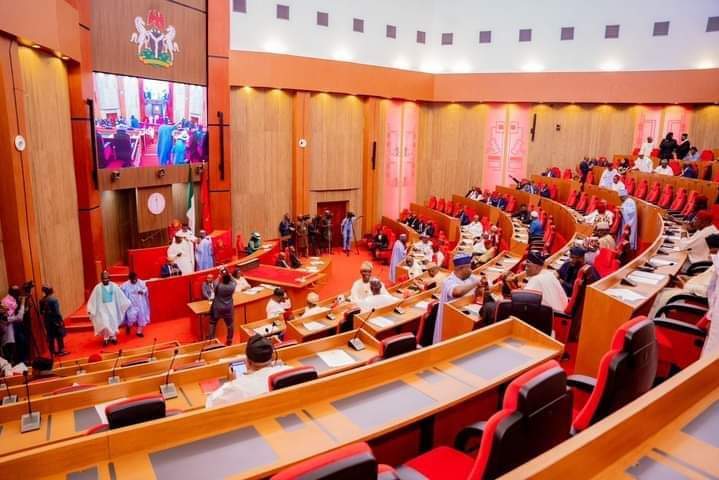Governor Uba Sani of Kaduna State has announced a substantial 40% reduction in tuition fees across all state-owned tertiary institutions, a move that has already resulted in a significant increase in student enrolment.
The governor made this declaration on Wednesday during his keynote address at the KADA EduPACT International Summit 2025, held at the Yar’Adua Hall in Murtala Square, Kaduna.
Speaking before a gathering of education experts, development partners, and policymakers, Governor Sani reaffirmed his administration’s commitment to eliminating financial barriers to education.
“No child in Kaduna should be denied an education due to financial constraints. When we assumed office in May 2023, we clearly stated that education would be the cornerstone of our administration. It is not merely a sector to be managed, but a powerful tool for individual empowerment and societal transformation,” he remarked.
This announcement coincides with Kaduna State’s recognition as Nigeria’s leading hub for vocational and technical training.
Three newly constructed Institutes of Vocational Training and Skills Development—situated in Rigachikun, Samaru Kataf, and Soba—have been certified by the National Board for Technical Education (NBTE) as the best-equipped skills centres in the country.
“According to the NBTE’s Executive Secretary, Professor Idris Bugaje, even Nigeria’s polytechnics and universities of technology cannot compare to the level of modern facilities and training equipment available at our institutes,” Governor Sani proudly declared. “Kaduna State has emerged as Nigeria’s undisputed hub for skills development.”
The vocational institutes, commissioned by President Bola Ahmed Tinubu on 19 June 2025, are part of a broader strategy to address youth unemployment and bridge the skills gap that impedes local economic growth.
“Our goal is threefold,” the governor explained. “To reposition Kaduna as a national centre of technical excellence, to provide sustainable employment opportunities for our youth, and to ensure that our workforce meets the demands of a modern economy.”
In addition to the vocational institutes, the state government is upgrading Panteka Market, Africa’s largest informal skills centre, which accommodates approximately 38,000 apprentices.
The upgrade includes improvements to the infrastructure and the introduction of advanced training tools to align with the Nigerian Skills Qualification Framework.
Governor Sani also highlighted significant investments in Kaduna State University (KASU), where ₦500 million has been allocated for programme accreditation and facility upgrades. These efforts have led to the National Universities Commission (NUC) approving 40 new academic programmes for the 2024/2025 session.
“This expansion reflects our determination to increase access, foster innovation, and align our university offerings with both national needs and global trends,” he stated.
Despite these advancements, the governor acknowledged the ongoing challenge of out-of-school children in the state.
“Kaduna still has a significant number of children outside the education system,” he admitted. “For us, every child outside the school gate is a stain on our collective conscience and a call to action.”
To tackle this issue, the state launched the Reaching Out-of-School Children (ROOSC) Project, an initiative that has already seen the construction and rehabilitation of over 1,000 classrooms, the commissioning of 62 new secondary schools, and the adoption of digital tools to monitor enrolment and attendance.
“We have distributed 1.48 million instructional materials and provided 30,742 two-seater desks,” Governor Sani stated. “Our target is to return 300,000 children to school and ensure they remain there.”
The KADA EduPACT Summit itself is designed to consolidate these achievements by developing a strategic roadmap for educational transformation.
Governor Sani outlined six key pillars guiding the plan: expanded access and equity, quality teaching and learning, sustainable financing, digital transformation, gender equity and inclusion, and system resilience.
“This summit must go beyond mere rhetoric,” he urged. “We need timelines, budgets, and accountability frameworks that will endure beyond political cycles and truly reflect the hopes of every child in Kaduna.”
The governor expressed his gratitude to international partners, including the United Nations, the UK Foreign, Commonwealth & Development Office (FCDO), the World Bank, and organisations such as UNICEF and Save the Children for their support.
He also commended President Tinubu and the Minister of Education, Dr. Maruf Tunji Alausa, for endorsing Kaduna’s educational reforms.
In his closing remarks, Governor Sani reiterated that education remains the state’s most powerful weapon against poverty and insecurity. “Prioritising education today is essential for building a just, resilient, and prosperous future for Kaduna,” he stated. “Let us create a system that is inclusive, technology-driven, and reflective of our people’s potential.”











